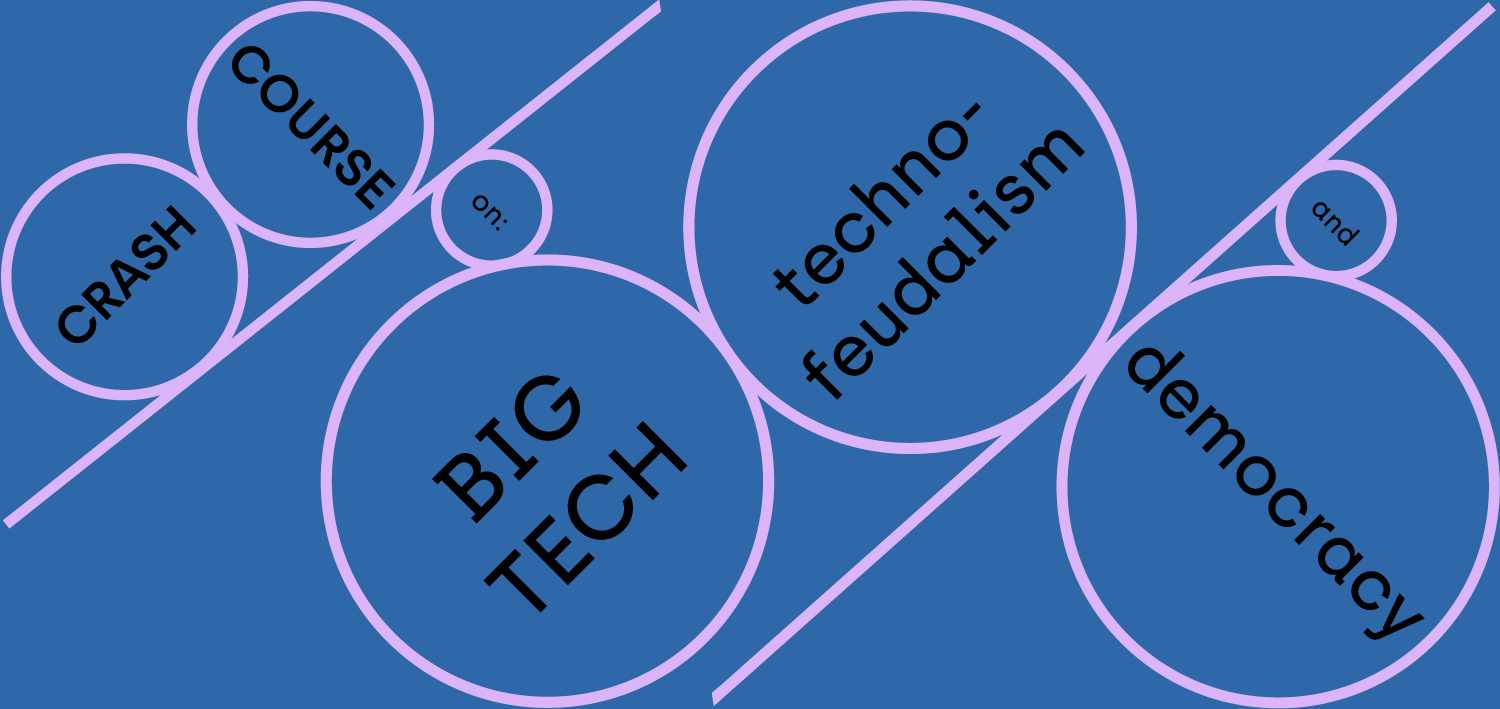
#2 Intellectual Property & Monopoly Capitalism — with Cecilia Rikap
In this second Crash Course episode of the series on Big Tech, Techno-feudalism and Democracy, we will zoom in on intellectual property. We have invited political economist Cecilia Rikap to explain where intellectual property comes from, what its role is in fabricating monopoly power, and why it is important to understand the rise of Big tech and Big Pharma.
We will further ask Rikap:
Is ‘intellectual monopoly capitalism’ a new accumulation regime?
And how does it change the rules of the game?
How does intellectual monopoly capitalism fit in the growing geo-political struggle between the US and China?

Cecilia Rikap is a political economist, researcher CONICET, Univ de Paris & COSTECH Univ Tech Compiègne. She studies the rising concentration of intangible assets, focusing on power relations and the distribution of data and innovation economic gains, resulting geopolitical tensions, and the effects on knowledge commons & development. Rikap just finished her new book Capitalism, Power and Innovation: Intellectual monopoly capitalism uncovered.
You can get in touch with Celilia via this address: ceciliarikap@gmail.com or via @CeciliaRikap
Podcast
In this third Crash Course series we turn to one of the biggest winners of the Covid-19 Pandemic: Big Tech. These increasingly powerful and financialized firms routinely represent themselves as ‘innovators‘ and ‘problem solvers‘ and self-proclaimed forces for good by connecting ‘users’ worldwide. But are the solutions provided by Big Tech as good as they contend? What does the rise of Big Tech entail for the sovereignty of countries in the Global South? How can we organize democratic control as capitalism moves into an unknown socio-technological phase? And how might we embrace technology as a force for good?
